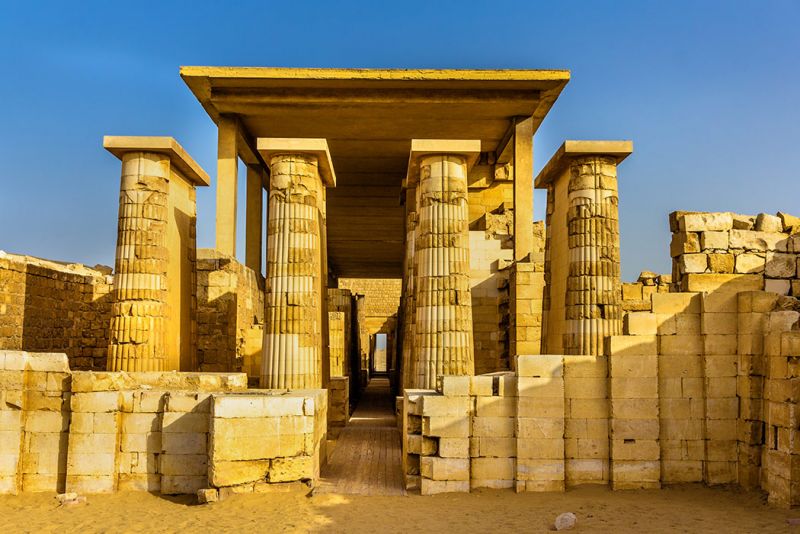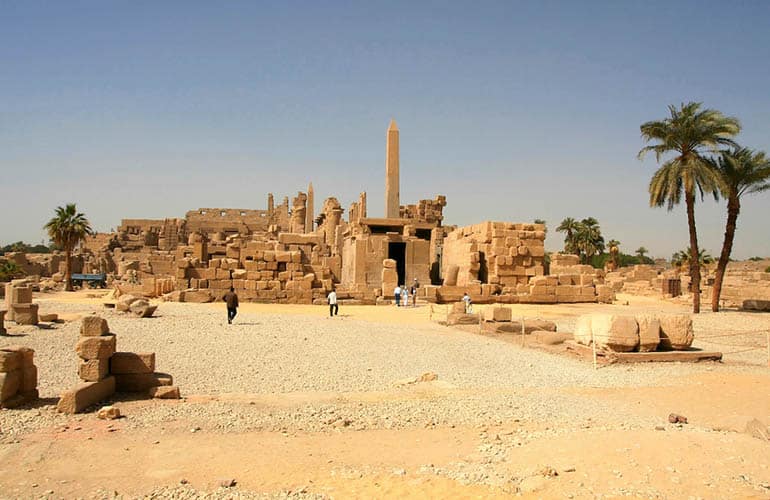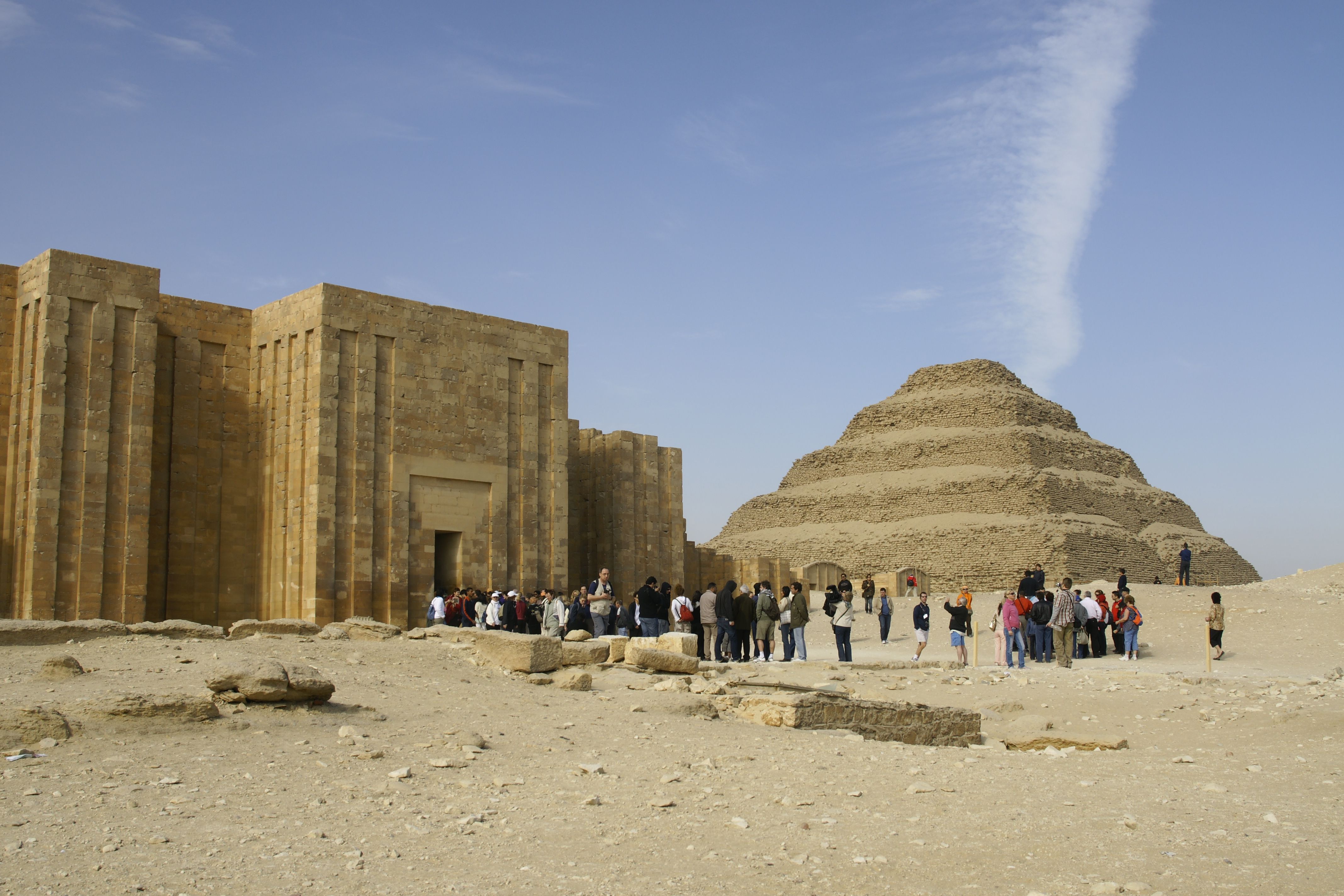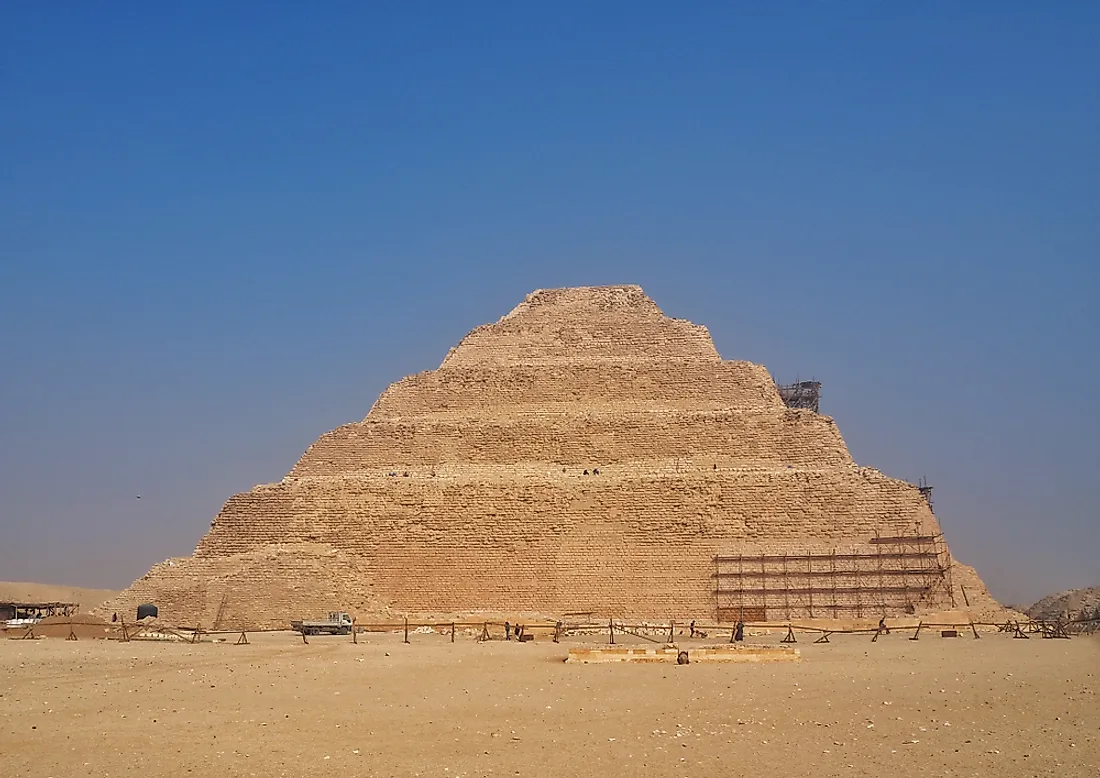


Welcome to the mystical realm of Ancient Memphis, once the bustling epicenter of Egypt's power, culture, and spirituality. Nestled along the banks of the majestic Nile River, this ancient metropolis served as the political and religious hub of the Old Kingdom, leaving an indelible mark on the annals of history.

Ancient Memphis, or "Ineb Hedj" in ancient Egyptian, flourished as the capital of Egypt during the Early Dynastic Period (c. 3150–2686 BCE) and throughout much of the Old Kingdom (c. 2686–2181 BCE). Founded by the legendary King Menes, who unified Upper and Lower Egypt, Memphis symbolized the consolidation of Egypt's power and the dawn of a new era.
As the seat of pharaonic rule, Memphis played a pivotal role in shaping the destiny of ancient Egypt. It served as the administrative, religious, and cultural center of the realm, attracting scholars, artisans, and traders from across the known world. The city's strategic location facilitated trade along the Nile and beyond, enriching its coffers and fostering a vibrant exchange of ideas and commodities.

Among the many marvels that adorned the landscape of Ancient Memphis, none were more iconic than the Great Pyramid of Giza, the Sphinx, and the Temple of Ptah. The Great Pyramid, one of the Seven Wonders of the Ancient World, stands as a testament to the ingenuity and ambition of the ancient Egyptians. The Sphinx, with its enigmatic visage, guards the necropolis of Giza, while the Temple of Ptah honors the patron deity of Memphis and served as a center of religious devotion.

Beyond its architectural splendors, Memphis left an enduring legacy in the realms of art, literature, and religion. The city inspired generations of poets, scribes, and craftsmen, whose works celebrated the grandeur of pharaonic civilization. From the hymns of praise to the gods to the vivid depictions of daily life, the cultural heritage of Ancient Memphis echoes through the corridors of time.
Despite its centuries-long reign as Egypt's foremost city, Ancient Memphis eventually succumbed to the ravages of time and shifting political fortunes. The rise of Thebes as the new capital marked the beginning of Memphis's decline, yet its legacy endured through the ages. Today, the remnants of this once-mighty city stand as a poignant reminder of Egypt's glorious past, inviting travelers and scholars alike to unravel its mysteries and marvel at its wonders.
In the heart of the Nile Valley, amidst the sands of time, Ancient Memphis beckons us to embark on a journey through the annals of history. From its towering pyramids to its serene temples, this fabled city encapsulates the essence of pharaonic civilization and serves as a beacon of inspiration for generations to come. Join us as we uncover the secrets of Memphis and pay homage to the enduring legacy of Egypt's timeless capital.
| Location | Giza Governorate, Egypt |
|---|---|
| Period | Early Dynastic Period to the end of the New Kingdom |
| Founded by | King Menes (Narmer) |
| Significance | Capital of Egypt during the Old Kingdom |
| Major Attractions | Great Pyramid of Giza, Sphinx, Temple of Ptah |
| Notable Features | Necropolis, Royal Palaces, Temple Complexes |